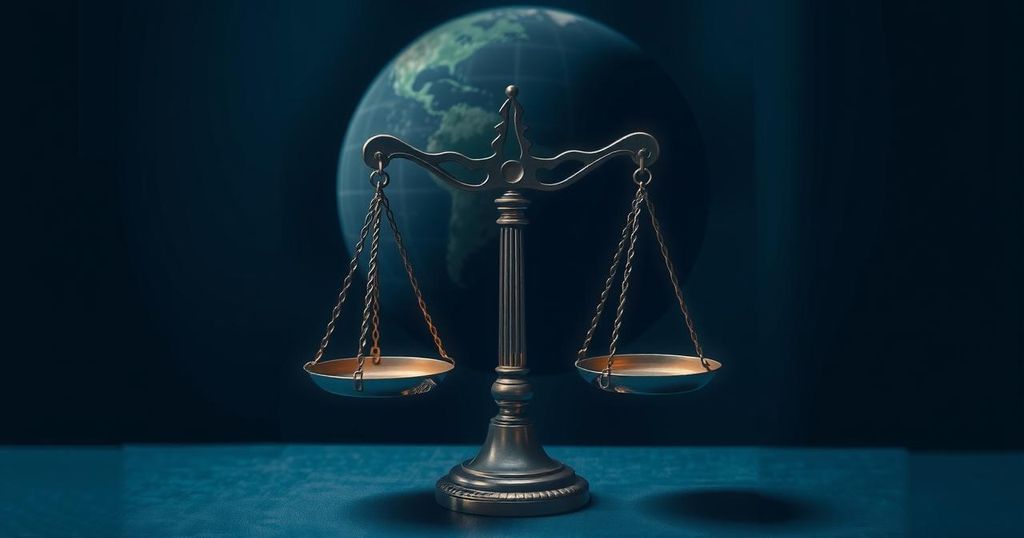Controversial Deportations: Insights on Immigrants Sent to South Sudan
The DHS is under fire for deporting convicted criminals, including murderers and sex offenders, to South Sudan. A federal judge has ruled that proper legal procedures were not followed in their removals, raising alarm among victim families and attorneys. Key individuals include Thongxay Nilakout, a murderer, and Kyaw Mya, a sex offender, whose deportations prompt serious questions about due process and legality.
A recent flight organized by the Department of Homeland Security (DHS) is stirring controversy as it transports convicted criminals, including murderers and sex offenders, to South Sudan. This flight occurred on May 20, carrying eight individuals all of whom had received serious criminal convictions in the United States. Concerns have been raised regarding the rapid and possibly flawed process that led to their removals, particularly from the families of the victims affected by their crimes.
The situation escalated after U.S. District Judge Brian Murphy ruled on May 21 that the government had acted against a previous order from April, which mandated that migrants should receive clear information and adequate time to voice concerns regarding transfers to third countries. Specifically, Murphy noted that the individuals must remain in custody while participating in credible fear interviews. This has raised the question of the legality and ethical practices surrounding these removals amidst allegations of disregard for due process.
During a press conference, DHS Assistant Secretary for Public Affairs Tricia McLaughlin emphasized the importance of focusing on the victims of these convicted individuals. She asserted, “Do your job, we gave you the names of these monsters, tell the stories of the innocent Americans they victimized,” highlighting the severity of the crimes committed.
Among those on the flight was Thongxay Nilakout, a Laotian man convicted of murder in 1994 after killing a German tourist during a robbery in Southern California. His victim’s family is deeply affected by the recent developments, with Birte Pfleger, the couple’s daughter, expressing her distress that due process was violated. She has stated, “Due process has been violated, and the U.S. legal system has failed twice.” Nilakout, who had been incarcerated for almost three decades, had faced scrutiny regarding his parole.
Another individual flagged for removal is Kyaw Mya, a Burmese man convicted in 2019 for committing lewd acts against a child. He had filed multiple petitions for post-conviction relief since his release. His attorney, Christopher Clausen, noted the troubling confusion surrounding Mya’s status post-release and the fact that he seems to be facing deportation to South Sudan, a country he has never been to and where he does not speak the language. Clausen remarked, “It seems odd to me that a person who is a citizen of Burma could be getting sent to Sudan.” His claims reflect a broader concern about the appropriateness of such deportations.
The individuals on this flight represent a mix of serious criminal backgrounds including homicide, armed robbery, and sexual offenses, with some being deported to countries where they have no ties. For example, the list includes other convicted individuals from Cuba, Mexico, and Vietnam, each with lengthy sentences attached to their convictions.
Critics are now questioning the rationale behind the rapid deportation of these convicted individuals, particularly when the potential risks to them and potential risks to their future surroundings are considered. The emerging details from these recent deportations seem to underline gaps in the procedures surrounding the removal of individuals found guilty of severe crimes. As the court’s ruling unfolds, the legal and ethical implications of these actions will be scrutinized closely.
In summary, the DHS’s actions regarding the deportation of several convicted criminals to South Sudan have set off a firestorm of questions surrounding due process and victim rights. Families of victims express profound distress over the perceived failures of the legal system. As more information comes to light, observers will be keen to learn how this situation may influence policy surrounding immigration and criminal justice in the future.
The recent deportations by the Department of Homeland Security of convicted criminals to South Sudan raise significant legal and ethical concerns. With conflicting narratives from victim families and government representatives, the current dialogue highlights the potential shortcomings of processes governing removals. As families grapple with the impacts, the implications for future policy and legal frameworks surrounding immigration remain uncertain yet crucial to address.
Original Source: www.usatoday.com




Post Comment